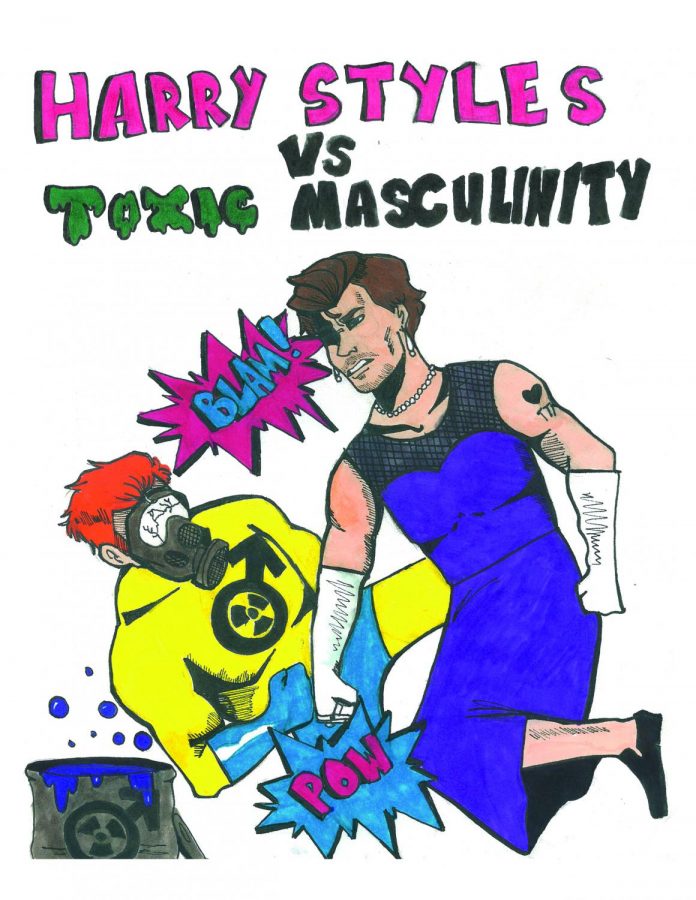Harry Styles Challenges Gender Norms
Throughout our history, gender norms have been very prevalent and can make people feel restricted or pressured to conform. Based on your gender, society has expectations for what you should look like, how you’re supposed to talk, behave, and the things that you should be interested in. The pressure to conform and conceal your feelings and forms of expression clouds our everyday life and future aspirations. Luckily, the progression of going against these societal norms has boomed and many people in the media, music industry, and in all walks of life are proving that anyone can act how they please. One man recently being Harry Styles.
Of course artists like Prince, Freddie Mercury, and David Bowe had defied gender roles in the music industry far before Harry Styles or current popular artists, but Harry Styles’ situation sparked controversy. Recently, Styles was put on the cover of Vogue wearing a dress, which is deemed typical feminine attire. Though many praised and loved the statement that defies standard gender norms, a few were unhappy to say the least.
One statement coming from Candace Owens claiming that “we need to bring back manly men and men cannot wear dresses”. A few others shared a similar opinion and spoke negatively about the situation, causing widespread arguments across the internet. Though everyone is entitled to their own opinions, it seems silly to label a piece of cloth and let it define how masculine or feminine you’re perceived.
If someone feels more comfortable in a dress or skirt, they should be allowed to wear that article of clothing and vice versa. Don’t let society and traditional expectations keep you trapped in a bubble, allow yourself to ignore those people and feel that wonderful freedom. Ultimately, I am very happy that defying gender norms is being normalized and more people are speaking out against traditional ideas from the past. Harry Styles and many more can help many people, especially the younger generation, come to terms with who they are and how they want to express themselves.





